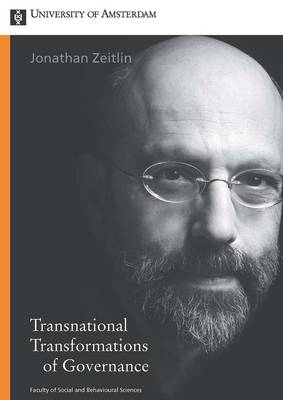Vor Maatschappij- en Gedragswetenschappen
1 primary work
Book 388
Far-reaching transformations in the nature of contemporary governance can be observed, within and beyond the nation-state. At the heart of these transformations, Jonathan Zeitlin argues, is the emergence of new forms of 'experimentalist' governance, based on framework rule-making and revision through comparative review of alternative approaches to advancing common objectives in different local contexts. The proliferation of these new organizational forms can best be understood as a response to increased environmental volatility and complexity, which have overwhelmed in many settings the capacities of conventional hierarchical governance and 'command-and-control' regulation. Although robust examples can be found in many jurisdictions, including the United States, the epicenter of these developments is the European Union, where experimentalist governance arrangements have been institutionalized across a wide range of policy domains over the past 15 years. These have not only facilitated the extension of European integration into new, politically sensitive policy fields, but also enabled the EU in many areas to produce high-quality, revisable rules capable of broad application across a diverse polity of 500 million inhabitants and 27 member states. In this inaugural lecture,Zeitlin analyzes the properties of these experimentalist arrangements, examines their development within the EU, and opens up new research questions about their influence on governance processes within the member states and beyond the Union's borders.
